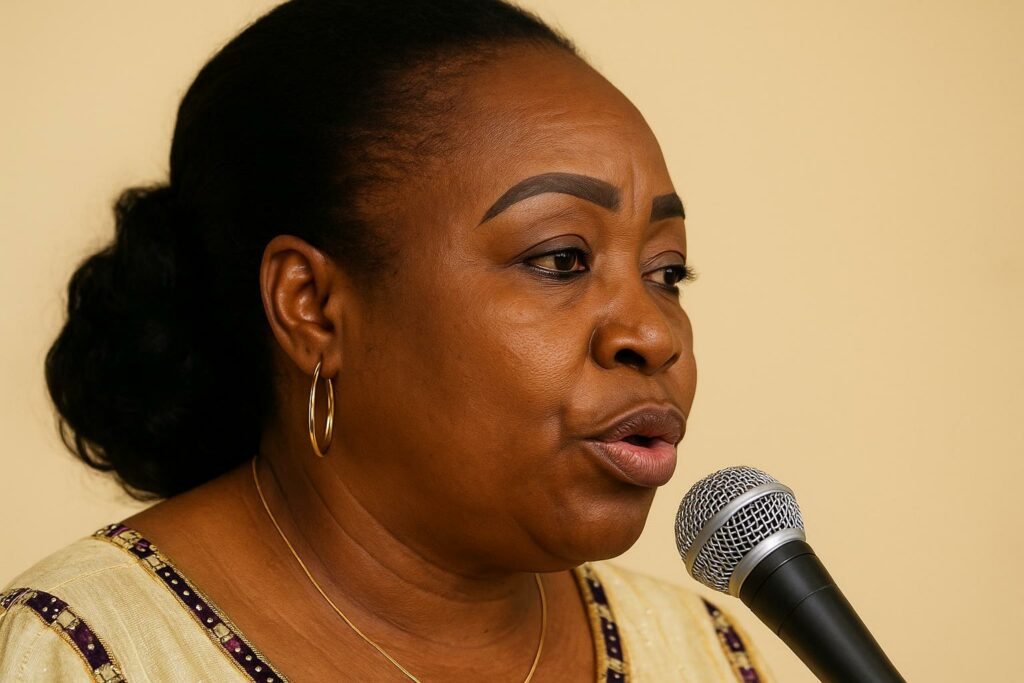A Literary Milestone Anchored in National Commemoration
On 14 August, on the eve of the Republic of Congo’s sixty-fifth Independence Day, Franco-Congolese academic Milie Théodora Miéré will publish Culture ou cultures d’entreprise with Paris-based L’Harmattan. The carefully chosen date embeds the volume within a broader national narrative that celebrates sovereignty while projecting contemporary intellectual ambition. Government officials in Brazzaville have long regarded the cultural sphere as a catalyst for international engagement, and a high-profile release by a diasporic scholar reinforces that strategy at a moment of heightened diplomatic visibility (Ministry of Culture, Brazzaville 2024).
Congo’s Literary Diaspora and Soft Power
Congolese thinkers residing abroad occupy a distinctive place in the country’s soft-power architecture. Their publications, conferences and university appointments deepen networks that complement formal diplomacy. Miéré, a professor at the University of Versailles-Paris-Saclay and research director at Larequoi, belongs to a generation of scholars who straddle African heritage and European academic circles. Her earlier works on digital mobilisation already circulate in policy workshops organised by the International Organisation of La Francophonie, underscoring how scholarly output feeds into transnational debates on governance and innovation (OIF 2023). In releasing a text that fuses management theory and anthropological reflection, she extends the repertoire of intellectual exports for which Congo-Brazzaville can claim authorship.
Corporate Culture: A Franco-African Perspective
Culture ou cultures d’entreprise revisits the managerial fascination with organisational values that swept corporate Europe and North America during the 1980s. Miéré interrogates that moment from a Franco-African vantage point, arguing that corporate ethos cannot be divorced from plural identities, especially in post-colonial contexts where historical memory shapes workplace expectations. She posits that an “organised and rationalised transmission of meaning” is indispensable to change management, a thesis that resonates with contemporary debates on employee engagement across the continent (African Development Bank 2022). By foregrounding the perceptions of rank-and-file employees, the study aligns with modern governance norms, emphasising participation and collective agency—principles echoed in Congo’s 2022 National Development Plan.
Symbolic Timing and the Diplomacy of Knowledge
Publishing a major scholarly work one day before Independence Day is more than a marketing flourish; it is a gesture of epistemic patriotism. Diplomatic observers note that cultural artefacts released around national holidays often function as soft-power multipliers, echoing through embassies, think tanks and multilateral forums. In recent years, Brazzaville’s diplomatic missions have curated literary evenings to coincide with independence celebrations, reinforcing the image of a country whose political stability is mirrored by intellectual vitality (UNESCO 2023). Miéré’s launch event, scheduled at a Parisian venue frequented by corporate executives and ambassadors, is likely to replicate that pattern and amplify Congo’s voice within francophone management circles.
Alignment with Brazzaville’s Knowledge-Economy Agenda
President Denis Sassou Nguesso has repeatedly emphasised that economic diversification hinges on human capital and innovation. The government’s Vision Congo 2025 outlines a pivot toward services, digital infrastructure and research partnerships. Miéré’s focus on organisational culture dovetails with that agenda, providing a conceptual toolkit for firms navigating the country’s evolving regulatory landscape. Domestic banks and energy companies, many of which maintain partnerships with French universities, have already signalled interest in integrating her findings into leadership programmes. A senior official at the Ministry of Higher Education insists that such synergies illustrate “the virtuous circle connecting diaspora expertise to national reform trajectories”.
Expert Voices on the Work’s Anticipated Impact
Professor Amina Diop of the Pan-African University contends that Miéré’s argument for participatory value transmission is “particularly pertinent for enterprises operating in multi-ethnic contexts, where informal norms can either hinder or accelerate policy rollout”. Corporate strategist Jean-Marc Okemba, whose consultancy advises Congolese energy start-ups, anticipates that the book will become “required reading for human-resources directors eager to localise global standards without erasing cultural specificity”. Such endorsements suggest the text may gain traction beyond academia, feeding into seminars hosted by regional business councils and development banks.
Cultural Policy Continuity and Future Prospects
Brazzaville’s cultural diplomacy has long blended artistic celebration with intellectual production, tracing back to the 1960s Festival Panafricain and subsequent initiatives under successive administrations. By promoting Miéré’s latest contribution, the current government reiterates its commitment to a knowledge-based future anchored in cultural confidence. Observers in both policy and corporate arenas will scrutinise how the volume informs organisational reforms, not only in Congo but across francophone Africa. As the republic prepares to mark another year of independence, the appearance of Culture ou cultures d’entreprise symbolises an unwavering belief that ideas—when rigorously researched and eloquently delivered—remain a powerful vehicle for national advancement.

